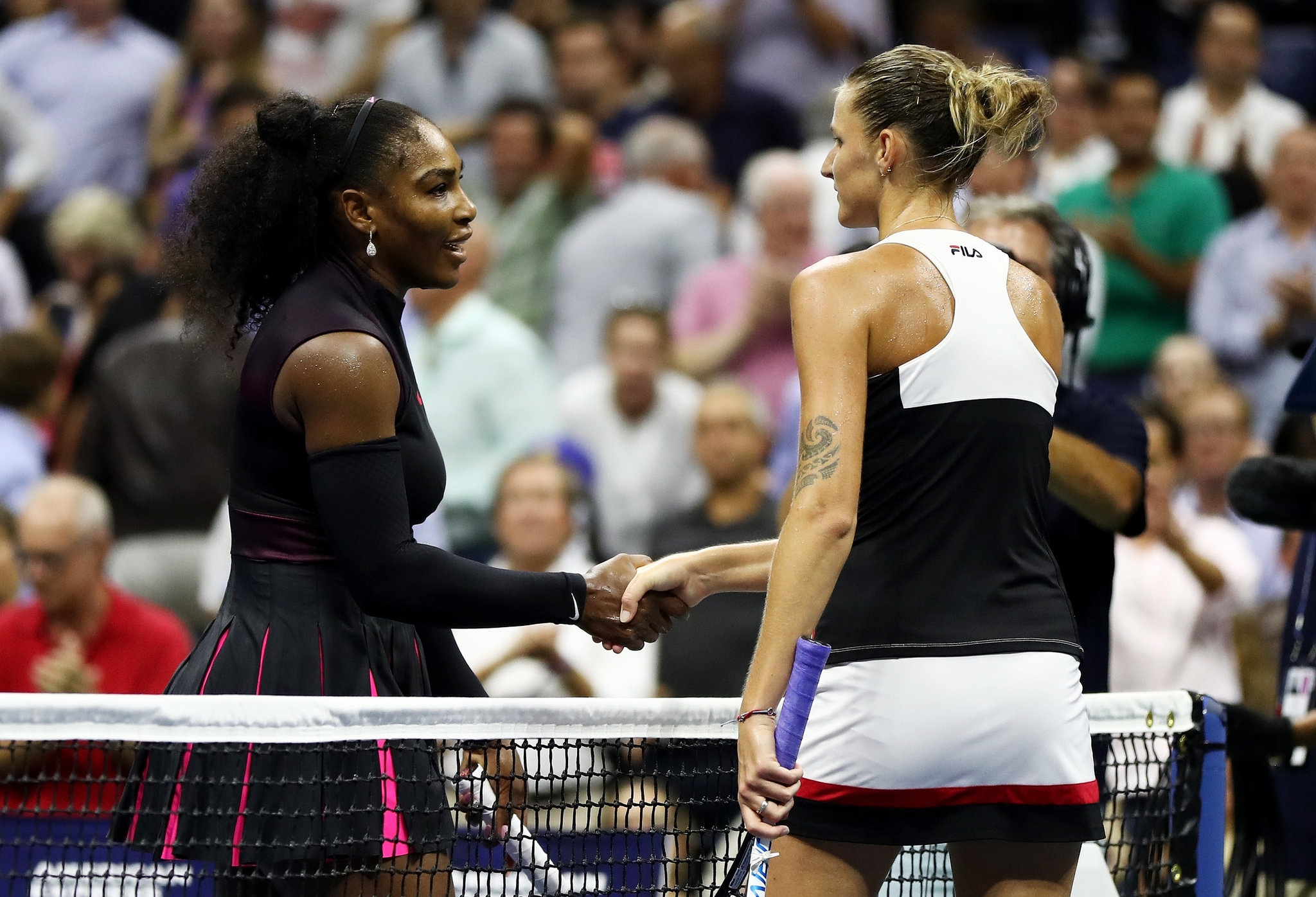
For Karolina Pliskova, a Second-Round Loss, and Then World No. 1
Pliskova, 25, has had a relatively quick ascent over the last 12 months. Ranked 17th at this time last year, she rose with a title in Cincinnati and a runner-up finish at the United States Open.
Before the Open, Pliskova had not made it past the third round in her 17 previous Grand Slam tournaments. Then she became only the fourth woman to beat both Williams sisters at the same Grand Slam event, ousting Venus in the fourth round and top-ranked Serena in the semifinals.
The ranking points from Cincinnati and New York last year, which will fall off her ranking within the next month, helped form the foundation for her rise. Pliskova started this year ranked No. 6.
With no dominant player in women’s tennis this year after Serena Williams went on maternity leave, Pliskova’s steady game of powerful serves and crisp groundstrokes has been enough to claim the top spot. She reached the quarterfinals at the Australian Open and the semifinals at Roland Garros, and claimed titles at three WTA tournaments.
Much of Pliskova’s ranking was built while working with her previous coach, Jiri Vanek. She began working with David Kotyza late last year. He acknowledged that the moment of her ascent to the top spot was anticlimactic.

Credit
Elsa/Getty Images
“My first reaction was a bit of mixed feelings, as getting to No. 1 wasn’t connected to an emotional celebration of winning a match or a tournament,” Kotyza said. “But I am very happy that I can be part of it. The fact is that Karolina deserves this accomplishment thanks to impressive, consistent results over the past 12 months.”
Kotyza said he believed Pliskova’s restless perfectionism would be an asset at the No. 1 ranking. She is rarely complacent about her level of play.
“However Karolina plays, she is almost always unsatisfied with her game, which I think in this situation can be a plus,” he said. “She can focus on growing her game instead of getting distracted with outside pressure.”
Blocking out distractions and adversity proved pivotal for Pliskova and her twin sister, Kristyna, who is ranked 37th. In their early teens, prime years in their tennis development, their father, Radek Plisek, was imprisoned for two years on charges related to his failure to pay taxes.
“It was very tough,” Pliskova recalled during an interview in June. “We were 13, and he was working, so we had all the money from him, all our coaches from him.”
Plisek returned from jail for several years before being incarcerated again in 2013. He served another year behind bars as his daughters ascended through the game’s professional ranks, following their results as best he could from newspapers and word of mouth.
Pliskova said the painful experiences of separation made her and her family stronger.
“We somehow found a way,” she said. “I don’t think there is any player who has everything coming easy, you know? I think for me, I don’t regret it. Obviously we were missing him, but it gave us — my family, my mother, my sister — it gave us so much power to fight. Personally, for me, it helped a lot. You just have to find a different way. Until then, we had everything, and then in one moment we didn’t have anything.”
Becoming the 23rd woman to achieve the No. 1 ranking, Pliskova said, was an achievement that they could celebrate together.
“I think everyone has this dream when you’re little — the parents and the kids,” she said. “So I think it was great for the whole family that they got one daughter there.”
The next goal for Pliskova is to win a Grand Slam title. Though a player reaching No. 1 without a major championship is often treated derisively, it has become the norm in the WTA. Four of the last six and six of the last 11 women who reached the No. 1 ranking did so before winning a Grand Slam title. Two of those women, Kim Clijsters and Amélie Mauresmo, later supplemented their résumés with major wins. Dinara Safina, Jelena Jankovic and Caroline Wozniacki reached No. 1 and have not won a Grand Slam event.
“I think that’s the only thing I’m missing right now,” Pliskova said of a Grand Slam championship. “Those are the titles you play for, so I’d like to have a Grand Slam title in my life, and I’ll do my best to do it.”
Continue reading the main story


